
This post was originally published on Michael West Media.

This post was originally published on Michael West Media.
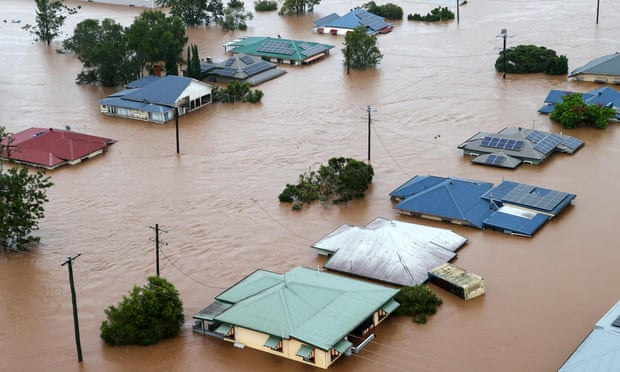
This post was originally published on Michael West Media.
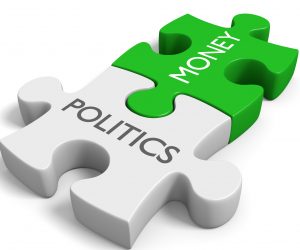
This post was originally published on Michael West Media.

A global pandemic illustrates for us, on a devastating scale, that we only have so much time for prevention, and then we spend all of our precious time, energy and resources attempting to manage the unmanageable – widespread harm, illness and complex long-term health impacts.
With toxic substances, it’s the same prevention vs. management problem. There is a small window to act in the public interest, and then it’s a massive, complex cleanup project that industry profits from and the public pays for. The government is failing us by not taking any action on preventing these toxic exposures in the first place. We cannot put these toxic chemicals back in the bottle once they’re released, so we need to keep them out of the bottle in the first place. With products such as cleaners and cosmetics, we don’t even have the right to know what’s in it – because companies are not required to include ingredients in their labels. This problem has an easy solution: require these product manufacturers to disclose ingredients.
We cannot put these toxic chemicals back in the bottle once they’re released, so we need to keep them out of the bottle in the first place. With products such as cleaners and cosmetics, we don’t even have the right to know what’s in it – because companies are not required to include ingredients in their labels. This problem has an easy solution: require these product manufacturers to disclose ingredients.
The federal government is dragging out the implementation of their election promise to label the hazardous ingredients in cosmetics, upholstered furniture, and cleaning products by Spring 2022. Health Canada announced that it would take at least another year to consult with industry, and we are looking at Spring 2023 at the earliest before we get any meaningful action on product labelling. This delay risks any chance they have to make real changes on these issues before the next election.
Such an irresponsible delay undermines the government’s commitments and puts our health and the environment at continued risk from known hazardous substances.
This government’s own 2017 report recommended improved labelling to protect consumers from hazardous substances found in many products we use every day. Labelling these hazards is an easy to implement requirement that is already in place in Europe and California. We don’t need to listen to yet another year, or decade, of consumer product companies telling the government they don’t want more labelling rules.
While the government continues to underdeliver on promises to tackle health and environmental harms, the consumer products industry has been getting away with hiding toxic chemicals in its products for decades. Their free run on exposing their customers to toxic pollution – by not having to disclose ingredients due to “trade secrets” – needs to end. Canadians need less talk and more action if we are going to see any real progress.
The risk of poorly labelled consumer products cannot be ignored, especially during a global pandemic when Canadians are exposed to more cleaning products than ever. We need to know what is in the products we buy and any risks their contents pose to our health. If the burden of telling us the truth is too high, the companies who make these products should remove the hazardous ingredients. There are plenty of safe and effective alternatives available.
Industry influence on this issue is significant – they don’t want to disclose their formulations, and often argue they are trade secrets. Secret recipes containing toxic chemicals have no place in our world and many other countries and U.S. states agree, and have acted. Our government should never put the suspect claims of industry ahead of safety and environmental health.
It is now time for the federal government to get serious about delivering on its commitments regarding this issue and include a legislated commitment to labelling of toxic chemicals in consumer products within Bill S-5, the bill that will reform and update the Canadian Environmental Protection Act.
The post False Progress on Labelling of Toxic Ingredients Continues to put our Health at Risk appeared first on Environmental Defence.
This post was originally published on Environmental Defence.
ENVIRONMENTAL DEFENCE, BREAST CANCER ACTION QUEBEC, CANADIAN ASSOCIATION OF PHYSICIANS FOR THE ENVIRONMENT
Canadians still unknowingly exposed to toxic chemicals in consumer products
Toronto | Traditional territories of the Huron-Wendat, the Anishnaabeg, Haudenosaunee, Chippewas and the Mississaugas of the Credit First Nation – The federal government announced today that they will delay action on requiring disclosure of toxic ingredients on labels of consumer products. This stall tactic denies consumers the right to know about ongoing hazardous chemical exposures and allergens that are currently not disclosed on everyday products such as cosmetics and cleaning products.
By delaying action and addressing only a small number of substances, the government has signalled that it will not meet its election platform promises and Ministerial mandate letters commitments on this important issue. The flame retardant commitment, for example, would only deal with a single type of flame retardant (since the government has only completed one assessment) out of hundreds within this class of chemicals. Most of the needed actions have been delayed to at least Spring 2023 – a year late, with no specificity on what will be regulated or how.
The failure to act demonstrates the need to amend the newly introduced Bill S-5, which is intended to modernize the Canadian Environmental Protection Act (CEPA).
The government has already undergone years of consultation and has received multiple reports that underscore the need to strengthen CEPA. Notably, a 2017 Parliamentary committee report recommended action on labelling for consumer protection and transparency. Canada is also falling behind Europe and California, which already require product labelling. The EU requires products to be labelled with health warnings for harmful ingredients and carcinogens. California brought in labelling regulations in 2017, flagging allergens and other substances of concern.
Building on a commitment made last Spring by former Environment Minister Jonathan Wilkinson, the Liberals’ 2021 Election Platform commits to the following:
“By Spring 2022, move forward with mandatory labelling of chemicals in consumer products, including cosmetics, cleaning products, and flame retardants in upholstery, that may have impacts on our health or environment.”
While these delays continue and mandates are ignored, the widespread use of these products continues to impact our health and contaminate the environment.
Tim Gray, Executive Director, Environmental Defence said:
“This is about the right of all Canadians to know what harmful chemicals they are exposed to in everyday products. The government’s failure to act on labelling toxic chemicals in consumer products is an attack on the health of all Canadians. If the government can’t or won’t provide this within their own proposed timeline, we must make it a mandatory requirement through Bill S-5.”
“Mere months after being re-elected, the government is trying to punt real action on toxics until after the next election.”
Jennifer Beeman, Executive Director, Breast Cancer Action Quebec said:
“Labelling of ingredients and substances in products is a fundamental issue of corporate accountability and there is no reason for the government to delay action on this. Corporations have huge latitude in terms of the substances they use in their products, including substances that are toxic and endocrine-disrupting. But then they fight labelling and having to disclose publicly what they use and to take responsibility for it. The use of toxic substances should no longer be hidden from view. Toxic exposures are affecting our health in profound ways. We need full disclosure of ingredients and labelling on the items we use every day or that will be in our homes for years to come.”
Jane McArthur, Toxics Campaign Director, Canadian Association of Physicians for the Environment said:
“Exposure to toxic substances in the products we use in the many environments we live, work and play in is a critical human health concern. One of the mechanisms that people in Canada can use in their efforts to prevent exposures – particularly within certain windows of vulnerability to harm from exposures – is to act on their awareness of product ingredients through transparent labelling. The right to know about exposures is a right that at the very least grants notice of potential harm and provides the transparency people in Canada want about possible exposures and related adverse health impacts. Action on labelling now means prevention of potential health harm in the future. Delay leaves the door open for more adverse health outcomes.”
Environmental Defence is a leading Canadian environmental advocacy organization that works with government, industry, and individuals to defend clean water, a safe climate, and healthy communities.
Breast Cancer Action Quebec is a feminist, environmental health organization whose mission is the prevention of breast cancer, with a particular focus on environmental factors linked to the disease. Working in collaboration with a wide range of groups, BCAQ educates on toxics and other health issues and works for a clean environment and communities that support the health of their members.
The Canadian Association of Physicians for the Environment (CAPE) is a physician-directed non-profit organization working to secure human health by protecting the planet. Since its founding in 1993, CAPE’s work has achieved substantial policy victories in collaboration with many partners in the environmental and health movements. From coast to coast to coast, the organization operates throughout the country with regional committees active in most provinces and all territories.
-30-
For more information or to request an interview, please contact:
Paula Gray, Communications Manager, Environmental Defence, pgray@environmentaldefence.ca, 705-435-8611
Viorica Lorcencova, Internal Coordinator, Breast Cancer Action Quebec, viorica.lorcencova@acsqc.ca, 514-443-8437
Pamela Daoust, National Communications Director, Canadian Association of Physicians for the Environment, pamela@cape.ca, 514-267-2589
The post Federal Government Breaks Promise To Label Products Containing Toxics appeared first on Environmental Defence.
This post was originally published on Environmental Defence.

This post was originally published on Michael West Media.
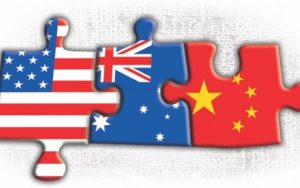
This post was originally published on Michael West Media.

This post was originally published on Michael West Media.

This post was originally published on Michael West Media.

This post was originally published on Michael West Media.
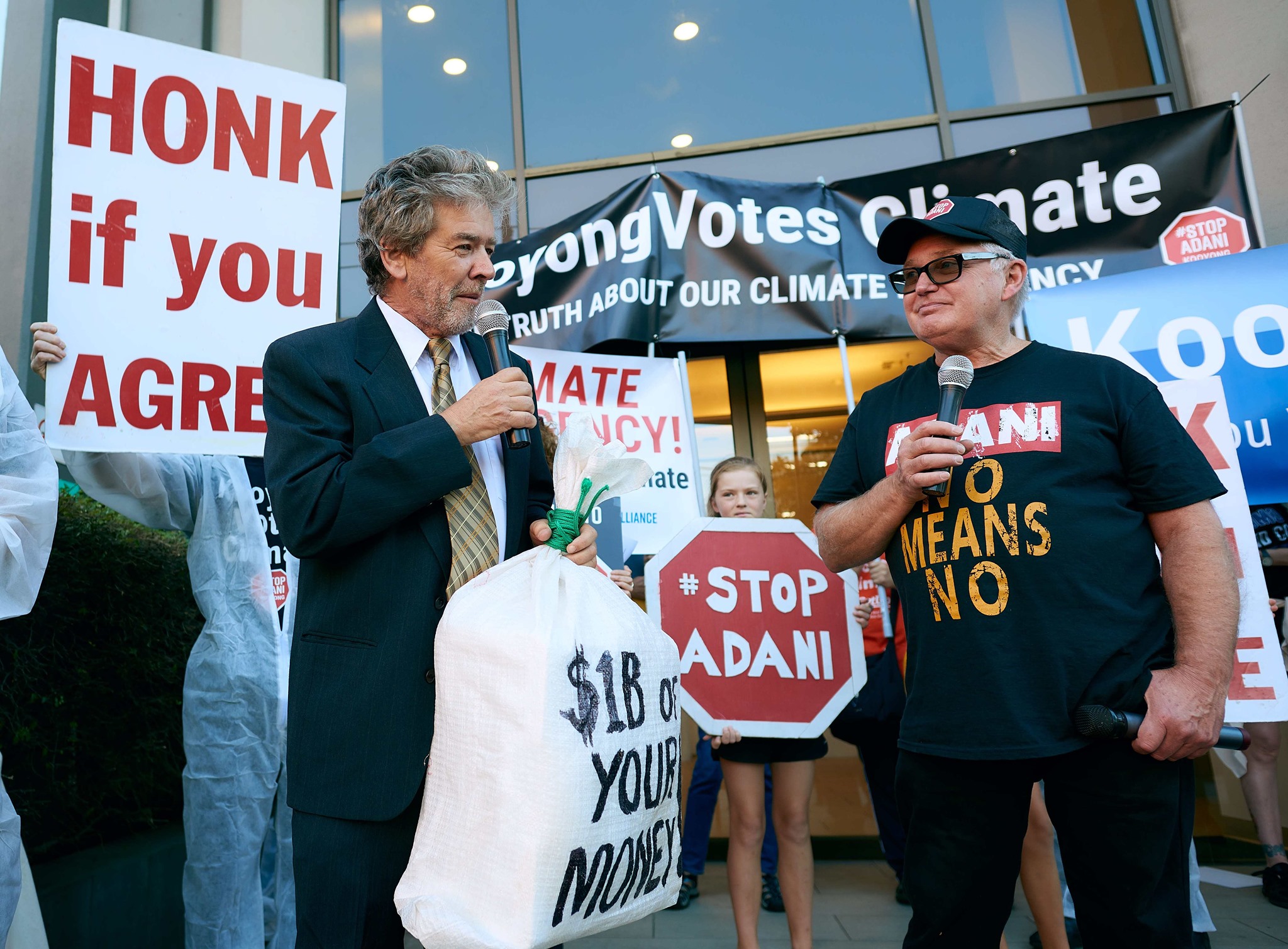
This post was originally published on Michael West Media.

We are celebrating because we are finally able to welcome the proposed update of the Canadian Environmental Protection Act (CEPA) – it’s been over 20 years since it was amended or modernized. Bill S-5, also known as the Strengthening Environmental Protection for a Healthier Act, replaces Bill C-28, which was introduced last spring, but died on the order paper when the federal election was called. The new bill brings with it some important changes to CEPA that will better protect our health and the environment from toxic chemicals – and it gives us a chance to push for further amendments to make the bill even stronger.
CEPA is the legislation that helps us protect the environment and human health. When we want to take action to get toxics out of products, such as getting BPA out of baby bottles or receipts, regulating climate-changing greenhouse gases, or banning single-use plastics – it’s done under CEPA. Improving this act can address the hazardous exposures that affect us all and do more to protect low-income, racialized and Indigenous communities disproportionately impacted by environmental toxins and the effects of climate change.
These are a few key changes that the government is proposing in this Bill:
Environmental rights: Environmental rights are being introduced for the first time in Canadian law, and if a few amendments can be secured this inclusion could represent an important step towards enshrining broader citizen rights to a healthy environment, and enhancing the rights that exist in some provincial legislation.
Vulnerability and susceptibility: Our current system tends to prohibit toxic substances only when substances are hazardous enough, and exposures are high enough within the ‘general population’ that our government decides they warrant some level of restriction. The changes proposed to CEPA would incorporate so-called ‘vulnerable populations’ considerations, which would require the address of the health hazards of particular chemicals at critical life stage windows of exposure (e.g. prenatal, infancy, puberty) and for Indigenous, racialized, and low-income communities who are exposed at higher levels because of where they live or work.
Cumulative effects: This change to chemicals risk assessment will help regulators incorporate the impact of our real-life exposures to chemicals which most often occurs in a manner where we are exposed to multiple chemicals at the same time. These chemicals can magnify the impacts of each other or even cause an effect that is very different from those caused by the individual chemicals alone.
This Bill is a welcome start, and we will work to make sure it goes further to make environmental rights, a precautionary approach to approving chemicals, and public transparency more meaningful and complete.
Here’s what we’ll be pushing for:
The introduction of this Bill comes at a time when the latest research states that we have reached a planetary boundary on chemical hazards, we need to start reducing our emissions immediately if we want to have a healthy future. We can design an economy that prevents massive future harms, burdens, and costs that are punted onto the next generation.
If we want to catch up to the 156 countries that already have environmental rights, and join the EU on prohibiting toxic substances, we need this government to go further. The stronger CEPA becomes, the better we can tackle our most pressing pollution problems.
We will be working with this knowledge about the urgent need for change as we push for these further amendments to make CEPA better. We will keep you informed and identify opportunities for you to get involved as we work to create a great toxics law for Canada!
The post Canada’s Toxics Law Is Finally About To Get Better…With Some Work appeared first on Environmental Defence.
This post was originally published on Environmental Defence.
ENVIRONMENTAL DEFENCE, BREAST CANCER ACTION QUEBEC, CANADIAN ASSOCIATION OF PHYSICIANS FOR THE ENVIRONMENT, DAVID SUZUKI FOUNDATION, ECOJUSTICE, ÉQUITERRE
CEPA modernization bill now reintroduced in the Senate must be strengthened and passed this year, groups say
Ottawa | Traditional, unceded territory of the Algonquin Anishinaabeg People – Environmental and health groups are urging Parliament to prioritize Bill S-5, introduced today in the Senate. The groups have long called for Canada’s most important environmental law, the Canadian Environmental Protection Act (CEPA), to be strengthened to better protect the environment and human health.
Bill S-5 was previously introduced in the House of Commons, as Bill C-28, in the last session of Parliament but was never debated and died on the order paper. The groups are calling for Bill S-5 to be strengthened and passed without further delay.
CEPA is supposed to protect Canadians from harmful pollution and toxic chemicals, but it has not been updated in over 20 years. In 2017, the House Standing Committee on Environment and Sustainable Development recommended strengthening CEPA. Consideration of these recommendations has now spanned three sessions of Parliament.
A modernized CEPA must be able to protect everyone in Canada from 21st-century environmental harm. All Senators and MPs must work together to make sure that the bill is improved and passes before the end of the year.
Groups are recommending amendments to Bill S-5 to make sure that CEPA contains an unqualified right to a healthy environment, that there are no loopholes for substances of the highest risk to remain a threat to the public, and that there are no delays in assessing the risk of dangerous chemicals, among other improvements.
Canadians cannot wait any longer for Parliament to bring CEPA into the 21st century and finally join other countries in recognizing the human right to a healthy environment in federal law.
Environmental and health groups urge the House Standing Committee on Environment and Sustainable Development to initiate an early consideration of the bill while the Senate debates and votes on this legislation to ensure a strong CEPA becomes law as soon as possible.
Dr. Elaine MacDonald, Ecojustice Healthy Communities program director said:
“CEPA reform is urgently needed to protect Canadians – especially the most vulnerable in our society – from dangerous levels of toxic pollution and chemicals. An outdated law means that people in Canada, unlike 156 countries worldwide, do not have the legal right to a healthy environment.
“Senators and MPs must make CEPA reform a top priority in Parliament and must move quickly to pass a strong and effective law that protects the public from 21st-century threats.”
Cassie Barker, Environmental Defence Toxics Senior Program Manager said:
“The toxic chemicals found in our air, water, food and products threaten Canadians and it’s past time to improve the legislation that prevents harm to our health and the environment.
“We need to heed the science on toxic chemicals, and this legislation needs to be improved so that Indigenous, racialized and low-income communities are no longer the most exposed to these hazards. When we need to act to prevent environmental harms, such as reducing greenhouse gas emissions or banning plastics – it’s done under this Act. The stronger it becomes, the better we can tackle our most pressing pollution problems.”
Lisa Gue, David Suzuki Foundation national policy manager said:
”Bill S-5 would recognize the human right to a healthy environment for the first time in federal law, a critical paradigm shift that reinforces other overdue updates to CEPA. While it’s encouraging that government is moving quickly to revive the bill after it died on the order paper last session of Parliament, as is, the bill isn’t perfect. To set us up for success as we tackle the climate and nature crises, this Parliament – both House and Senate – must prioritize the bill, strengthen it and pass it into law.”
Jennifer Beeman, Executive Director of Quebec Breast Cancer Action, said:
“Canadians and First Nations communities know that we have a serious problem with toxic exposures in Canada. Flame retardants and PFAS in furniture and clothing, BPA in plastics, cash receipts and can linings, phthalates in air fresheners, fabric softeners, perfumes and cosmetics, to name just a few, have all been shown to interfere with biological processes in ways that produce serious harms, including neurological and reproductive disorders and cancers. What citizens don’t understand is why we have all these problems. Our regulatory system for toxic substances has failed us badly, but if this bill is strengthened and passed, the federal government has a real opportunity to protect the environment and the health of citizens. We must absolutely get this reform right.”
Jane McArthur, Toxics Campaign Director at Canadian Association of Physicians for the Environment (CAPE) said:
“Today’s environmental health realities must be reflected in legislation to be protective and preventive. For the present and future health of people living and working in Canada, we need meaningful recognition of a human right to a healthy environment, a bill that will close the loopholes on toxic substances and remove barriers to citizens bringing forward concerns about toxic exposures. We need to think for the long-term. Action on CEPA reform now is action for the future of public health and environmental justice.”
Marc-André Viau, director of government relations at Équiterre, said:
“Stronger environmental laws make for healthier communities: the two are intricately connected. Updating the Canadian Environmental Protection Act must be a priority for this session of parliament to ensure we have the legislative framework in place for the transition to a green economy.”
Environmental Defence is a leading Canadian environmental advocacy organization that works with government, industry, and individuals to defend clean water, a safe climate, and healthy communities.
Breast Cancer Action Quebec is a feminist, environmental health organization whose mission is the prevention of breast cancer, with a particular focus on environmental factors linked to the disease. Working in collaboration with a wide range of groups, BCAQ educates on toxics and other health issues and works for a clean environment and communities that support the health of their members.
The Canadian Association of Physicians for the Environment (CAPE) is a physician-directed non-profit organization working to secure human health by protecting the planet. Since its founding in 1993, CAPE’s work has achieved substantial policy victories in collaboration with many partners in the environmental and health movements. From coast to coast to coast, the organization operates throughout the country with regional committees active in most provinces and all territories.
The David Suzuki Foundation (davidsuzuki.org) is a leading Canadian environmental non-profit organization, collaborating with all people in Canada, including government and business, to conserve the environment and find solutions that will create a sustainable Canada through evidence-based research, public engagement and policy work. The Foundation operates in English and French, with offices in Vancouver, Toronto and Montreal.
Ecojustice uses the power of the law to defend nature, combat climate change, and fight for a healthy environment. Its strategic, public interest lawsuits and advocacy lead to precedent-setting court decisions and law and policy that deliver lasting solutions to Canada’s most urgent environmental problems. As Canada’s largest environmental law charity, Ecojustice operates offices in Vancouver, Calgary, Toronto, Ottawa, and Halifax
Équiterre offers concrete solutions to accelerate the transition towards a society in which individuals, organizations and governments make ecological choices that are both healthy and equitable.
– 30 –
For more information or to request an interview, please contact:
Stephanie Kohls, Communications Director, Environmental Defence, media@environmentaldefence.ca, 416-885-7847
Viorica Lorcencova, Internal Coordinator, Breast Cancer Action Quebec, viorica.lorcencova@acsqc.ca, 514-443-8437
Pamela Daoust, National Communications Director, Canadian Association of Physicians for the Environment, pamela@cape.ca | 514-267-2589
Brendan Glauser, Communications Director, David Suzuki Foundation, bglauser@davidsuzuki.org, 604-356-8829
Sean O’Shea, Communications Specialist, Ecojustice, soshea@ecojustice.ca, 416-368-7533 ext. 523
Anthony Côté Leduc, Media Relations, Équiterre, acoteleduce@equiterre.org, 514-605-2000
The post Parliament Must Prioritize Passage of Strong Environmental Protection Bill appeared first on Environmental Defence.
This post was originally published on Environmental Defence.
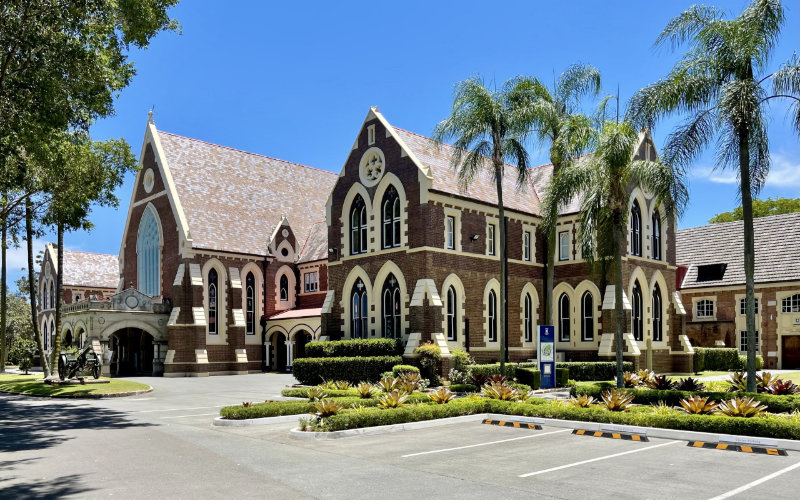
This post was originally published on Michael West Media.
The federal Opposition has backed the creation of a manufacturing industry fund, regular reviews of R&D incentives, as well as changes to procurement rules to encourage the development of sovereign capability in a Senate report which sets the manufacturing battle lines for the upcoming election. The Labor-led Economics References Committee tabled its report into Australia’s…
The post Senate report sets manufacturing battle lines for the election appeared first on InnovationAus.
This post was originally published on InnovationAus.

This post was originally published on Michael West Media.
Glyphosate poses an unacceptable risk to human health
Toronto, Ont./ Traditional territories of several First Nations including the Williams Treaties First Nations, Huron-Wendat, the Anishnaabeg, Haudenosaunee, Chippewas, and the Mississaugas of the Credit First Nation – The Federal Court of Appeal has ordered Health Canada’s Pest Management Regulatory Agency (PMRA) to reconsider an objection to its approval of the pest control product glyphosate, a probable carcinogen. The decision is a major win that upholds Canadians’ right to participate in decision-making about risky pesticides that impact their health and that of the environment.
This victory stems from a case brought by Safe Food Matters (SFM) who were ably represented by Andrea Gonsalves of Stockwoods, LLP. Unlike other glyphosate cases, this one focused on the actions of the regulator, the PMRA, not about whether the chemical causes cancer. SFM called for a review of the PMRA’s 2017 decision that allowed glyphosate to stay registered in Canada for another 15 plus years.
Ecojustice lawyers represented the David Suzuki Foundation, Environmental Defence Canada, and Friends of the Earth Canada as interveners in Safe Food Matters Inc. v. Attorney General of Canada. The groups raised concerns about the unduly high threshold the Federal Court set for a member of the public to trigger an independent review panel of a PRMA decision. In its ruling, the Court reaffirmed that allowing the opportunity for public participation is a main pillar of the Pest Control Products Act that must be respected.
This is the first time the Pest Control Products Act has been considered by the Federal Court of Appeal, providing an opportunity for guidance from the court about how the Act should be interpreted by the PMRA. In the decision, the panel found the Federal Court erred in its interpretation of the term ‘scientifically founded doubt,’ and provided guidance to the PMRA as it goes about its redetermination.
Laura Bowman, lawyer, Ecojustice said:
“Ecojustice is pleased with the Federal Court of Appeal’s decision which reinforces the right of Canadians to request an independent scientific review of decisions made by the PMRA about potentially harmful pest control products.
“The PMRA needs to take the independent review of its pest control product decisions more seriously, and the Federal Court of Appeal confirmed that decisions about independent science must align with the Act’s purpose to prevent unacceptable risks.
“The Court’s decision will help encourage the PMRA to use the best available scientific research to guide decision-making about this potentially dangerous product.”
Mary Lou McDonald, founding member and President, Safe Food Matters Inc. said:
“We are beyond pleased with this decision. The Court did more than just remit our objections back to the PMRA; it added strong ‘guidance’ for PMRA to follow. The PMRA needs to look at our case through a purposive, statutory lens. When making a decision, it must ask, ‘what are we supposed to be doing?’ And the answer is: ‘Protecting Canadians and the environment from the risks of pesticides.’ The answer is not advancing trade or allowing continued sales. It is protecting Canadians.
“Safe Food Matters’ evidence raised a ‘scientifically founded doubt’ about the 2017 assessment of glyphosate. Based on the guidance provided in the Court of Appeal’s decision, PMRA will now have to explain how its decision-making approach is protective of Canadians. We don’t think they will be able to because they didn’t look at the risks associated with pesticide translocation, indeterminate crops and old data. Our expectation is the PMRA will strike a review panel, and our hope is the panel puts an end to the pre-harvest use of glyphosate.”
Cassie Barker, Toxics Senior Program Manager, Environmental Defence said:
“This is an important wake-up call to government officials to ensure that they are conducting comprehensive, science-based reviews of these hazardous substances.
“When thoughtful, evidence-based questions are raised on the health and environmental impacts of pesticides, government must consider that evidence.
“Glyphosate residues on our food are a real concern to scientists and Canadians, and it’s time that governments look beyond corporate science and consider the independent evidence for prohibiting this carcinogen.
“We shouldn’t have to go to court to get government regulators to consider that their information on hazardous pesticides is incomplete, and their decisions to allow these products on our food and in our water are flawed.”
Beatrice Olivastri, CEO, Friends of the Earth Canada said:
“This important Court decision is about protecting individuals and the environment from harm by pest control products which are designed to kill. It reaffirms the important role citizens were given 20 years ago by Parliament when they last overhauled the Pest Control Products Act.
“Friends of the Earth has grave concerns about the safety of products containing glyphosate as their active ingredient that the Pest Management Regulatory Agency has allowed into Canada. There is a lack of confidence in PMRA’s assessment of glyphosate. As a minimum, a review panel of independent scientists is essential to building any public confidence in PMRA.”
Background
In April 2017, the Pest Management Regulatory Agency released its re-evaluation on glyphosate which failed to take into account its impact on human health. Despite alarming evidence brought to light by the Monsanto papers, and additional evidence submitted by Safe Food Matters and other NGOs in their notices of objection, the PMRA determined the risks to human health and the environment were acceptable without new restrictions.
Safe Food Matters raised concerns about the decision-making process undertaken by the PMRA regarding this harmful chemical. The group looked at pre-harvest use of glyphosate on certain crops. The organization saw high levels in cereal and legume crops, and objected that PMRA had not properly considered:
The dietary consumption data was based on what Americans ate in 1994-1996 and 1998, not Canadians’ diets, and Canadians are now consuming far greater quantities of chickpeas, hummus, and other legumes than in the 1990s. The PMRA should not rely on outdated scientific data from other regions when making important decisions about chemicals that impact the health of Canadians and our environment.
Canada’s health minister subsequently refused requests from SFM and several other environmental and health organizations for an independent panel to review the decision to continue the registration of glyphosate use in Canada. In early 2019, Safe Food Matters initiated legal action. The Federal Court dismissed their application to judicially review the Minister of Health’s decision, a ruling that the Federal Court of Appeal victory overturns. Ecojustice represented the interveners David Suzuki Foundation, Environmental Defence, and Friends of the Earth Canada in this appeal.
About
Ecojustice uses the power of the law to defend nature, combat climate change, and fight for a healthy environment. Its strategic, public interest lawsuits and advocacy lead to precedent-setting court decisions and law and policy that deliver lasting solutions to Canada’s most urgent environmental problems. As Canada’s largest environmental law charity, Ecojustice operates offices in Vancouver, Calgary, Toronto, Ottawa, and Halifax.
Safe Food Matters Inc. is a Canadian non-profit corporation, engaged in policy issues on pesticides and crop production technologies that harm Canadians and the environment. It works to improve the regulatory landscape and is currently active on issues relating to glyphosate, chlorpyrifos and gene editing. It would like to see improvements in the risk assessment process used by Health Canada.
The David Suzuki Foundation is a leading Canadian environmental non-profit organization, collaborating with all people in Canada, including government and business, to conserve the environment and find solutions that will create a sustainable Canada through evidence-based research, public engagement, and policy work. The Foundation operates in English and French, with offices in Vancouver, Toronto, and Montreal.
Environmental Defence is a leading Canadian environmental advocacy organization that works with government, industry, and individuals to defend clean water, a safe climate, and healthy communities.
Friends of the Earth Canada is the Canadian member of Friends of the Earth International, the world’s largest grassroots environmental network campaigning on today’s most urgent environmental and social issues.
To arrange an interview:
The post Court orders Health Canada to re-consider objections to approval of dangerous pesticide appeared first on Environmental Defence.
This post was originally published on Environmental Defence.

This post was originally published on Michael West Media.
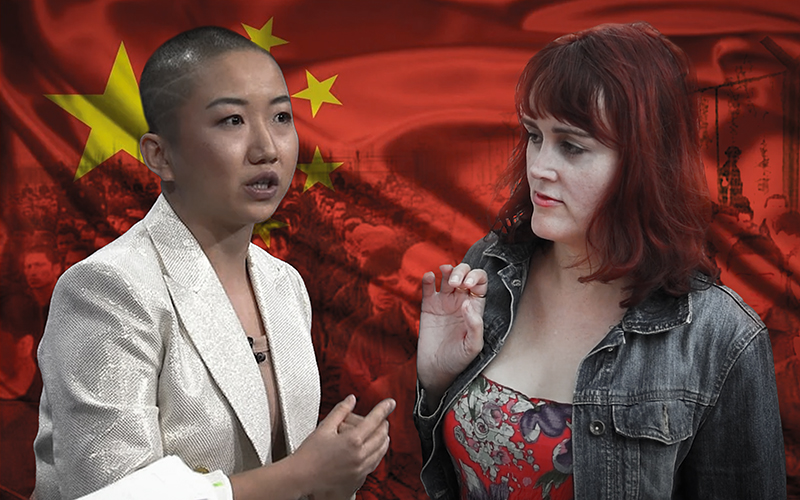
This post was originally published on Michael West Media.

This post was originally published on Michael West Media.

This post was originally published on Michael West Media.

This post was originally published on Michael West Media.

This post was originally published on Michael West Media.
Listen to a reading of this article:
❖
I’ve been kicking around some ideas for a dystopian novel lately, and I was hoping readers might be able to provide me with some feedback.
I’m picturing a story set in a world where everyone’s a slave but doesn’t know it. People think thoughts they believe they came up with themselves, make decisions and lifestyle choices that they think are their own, buy things they sincerely believe they want, consume entertainment they honestly feel they enjoy, vote for political candidates they truly think they support, when in reality they’re all marching in complete obedience to an elite ruling class whose high-level mastery of mass-scale psychological manipulation has bent the public to their will.
In my novel people will be funneled from early childhood through an education system designed by plutocrats and social engineers to create efficient and compliant gear-turners, then when they are grown their programming continues in the form of mass media indoctrination. If they become politically aware they are funneled into artificially constructed ideological perspectives that are designed to look truthful and appealing but which don’t challenge existing power structures in any meaningful way.
In the same way, the political system in this dark alternate reality is designed to look free and democratic, but there’s no real connection between how people vote and the way their civilization actually functions. An unacknowledged, unofficial alliance of plutocrats and government operatives makes the actual decisions about how money, industry, government, and military forces will behave from day to day, and this secretive alliance controls the official political system the public believes is responsible for overseeing those matters. What people call “elections” are actually just the public choosing between two lackeys of that ruling alliance, and their only meaningful disagreements are on how the will of those rulers should best be advanced.
My dystopian society is built on endless violence, oppression and exploitation, but because in this world the science of mass-scale psychological manipulation is so advanced, people don’t even know that it’s happening. Mass murder is committed continuously in nonstop military operations overseas, and the public is successfully convinced that it’s to promote freedom and democracy and keep them safe from terrorism. People have to work multiple jobs in the wealthiest nation in the world just to put food on the table, and they are brainwashed into believing it’s their fault for not making better life choices. People die of exposure on the streets while billionaires rake in exponentially more wealth, and the public is programmed to believe it’s because the latter work harder than the former. Police forces and prison systems keep expanding in order to exert more control and people are trained to believe it’s to make them safe from crime. Journalists are imprisoned for telling the truth and people are told it’s to protect national security. Information on the internet is aggressively controlled and people are propagandized into accepting that it’s to protect them from dangerous speech.
In my dystopian novel the powerful will simply do as they please and then promote narratives to explain why those actions were justified. If a smaller, weaker government isn’t sufficiently obedient to the world’s dominant power structure, reasons will be manufactured to explain why they must be ousted. If it’s necessary to exert more control at home or abroad, justifications will emerge for why military expansionism is needed in this or that geostrategically important region or why increased domestic surveillance is required to keep people safe. The armed goons and war machines move wherever they are needed, and the public is either kept in the dark about those movements or told made-up stories explaining why they must occur.
Endless mass military slaughter is essential for the existence of the ruling power structure in this dystopia, because without it the world’s governments would simply behave in whatever way advances their own interests. The government is so profoundly corrupt that the corporations who manufacture military weaponry are inseparably intertwined with the decision-making apparatus of its foreign policy establishment and are permitted to actively lobby for more wars so that more of its expensive weaponry will be used. Mountains of human corpses are amassed for no other reason than because it is more profitable to launch weapons at them than to leave them alone. Nuclear weapons are stockpiled and placed around the world for no other reason than because it is profitable to make more of them.
It’s the same with environmental and economic policies. A global system is held in place at gunpoint in which mass-scale human behavior is driven by the pursuit of profit for its own sake, so environmental and economic policies just like military policies are formed not based on what would be best but on what would be most profitable for the plutocrats who shape those policies. Industry moves in whatever way rakes in the most money, no matter who it hurts, no matter how badly it imperils humanity.
And everyone just marches along with it, because they are manipulated into accepting this disaster by sophisticated propaganda systems, by movies and TV shows designed to normalize the dystopia they exist in, by tightly controlled information access, and by their own psychological compartmentalization since the reality of their situation is too disturbing to look at directly. They turn the gears of their dark world and then stay up late binging on soulless comedy shows to distract them from the horrors lurking just beneath the surface.
Obviously such a dystopia would be completely unsustainable and the most obvious ending would be to kill the whole world off within a few books by nuclear war or ecological disaster or something equally terrible, but maybe I could have the populace simply wake up to the manipulations and take back their will and shrug off the elites’ control like a warm coat on a summer’s day? I dunno. Something tells me that for some unknown reason today’s readers are too inured with learned helplessness and knee-jerk pessimism to be able to even imagine such a scenario, let alone accept it as a believable development.
Anyway, that’s my pitch. What do you all think? Does this thing have legs? Or is it too different from today’s world for people to relate to?
______________________
My work is entirely reader-supported, so if you enjoyed this piece please consider sharing it around, following me on Facebook, Twitter, Soundcloud or YouTube, or throwing some money into my tip jar on Ko-fi, Patreon or Paypal. If you want to read more you can buy my books. The best way to make sure you see the stuff I publish is to subscribe to the mailing list for at my website or on Substack, which will get you an email notification for everything I publish. Everyone, racist platforms excluded, has my permission to republish, use or translate any part of this work (or anything else I’ve written) in any way they like free of charge. For more info on who I am, where I stand, and what I’m trying to do with this platform, click here.
Bitcoin donations:1Ac7PCQXoQoLA9Sh8fhAgiU3PHA2EX5Zm2
Feature image by Ray Dumas, Attribution-ShareAlike 2.0 Generic (CC BY-SA 2.0)
This post was originally published on Caitlin Johnstone.

This post was originally published on Michael West Media.
Seems like almost every day now the mass media are blaring about the need for speech on the internet to be controlled or restricted in some way. Today they’re running stories about Joe Rogan and Covid misinformation; tomorrow it will be something else.
The reasons for the need to control online speech change from day to day, but the demand for that control remains a constant. Some days it’s a need to protect the citizenry from online disinformation campaigns by foreign governments. Sometimes it’s the need to guarantee election security. Sometimes it’s the need to eliminate domestic extremism and conspiracy theories. Sometimes it’s Covid misinformation. The problems change, but the solution is always the same: increased regulation of speech by monopolistic online platforms in steadily increasing coordination with the US government.
It’s actually pretty comical at this point, once you notice it. It’s like if you had an expensive Prada bag that your friend really coveted and she was always making up excuses to try and take it home with her. “Gosh I’m carrying all these small objects and I have nothing to carry them in!” “You’re going on vacation? I’ll look after your Prada bag for you!” “Oh no you slipped and now you’re clinging to a cliff’s edge! Quick! Throw me your Prada bag!” Once you know what they’re actually after, their attempts to obtain it look clownish and silly.
Caitlin Johnstone: The Obedient Censors at Meta https://t.co/M2ewa4zK1A
A monopolistic Silicon Valley mega-corporation deleting political speech about an important historical figure because Washington says he was a terrorist is a notably brazen act of censorship. pic.twitter.com/JooPenFZfY— Consortium News (@Consortiumnews) January 7, 2022
Whenever I talk about how the immense power structure which the mass media serves and protects has a desperate need to control online speech, I’ll always get a few people objecting that the powerful don’t care about what ideas and information the ordinary riff raff share with each other on internet forums. They just do what they want regardless of public opinion, like Greek gods on Mount Olympus.
And really nothing could be further from the truth. Controlling the thoughts we think about our nation and our world are of paramount importance to our rulers, because it’s only by controlling what we think that they can control how we vote, how we act, and whether or not we get fed up with being exploited and oppressed by a loose alliance of unelected plutocrats and government operatives. There is nothing, literally nothing, that these people would not do to maintain this control. Their very survival depends on it.
Michael Parenti summed this up perfectly in his 2015 book “Profit Pathology and Other Indecencies” with this passage that was recently shared by Louis Allday:
“But they don’t care about what we think. They turn a deaf ear to us,” some people complain. That is not true. They care very much about what you think. In fact, that is the only thing about you that holds their attention and concern. They don’t care if you go hungry, unemployed, sick, or homeless. But they do care when you are beginning to entertain resistant democratic thoughts. They get nervous when you discard your liberal complaints and adopt a radical analysis. They do care that you are catching on as to what the motives and functions of the national security state and the US global empire are all about at home and in so many corners of the world. They get furiously concerned when you and millions like you are rejecting the pap that is served up by corporate media and establishment leaders.
By controlling our perceptions, they control our society; they control public opinion and public discourse. And they limit the range and impact of our political consciousness. The plutocrats know that their power comes from their ability to control our empowering responses. They know they can live at the apex of the social pyramid only as long as they can keep us in line at the pyramid’s base. Who pays for all their wars? We do. Who fights these wars? We do or our low-income loved ones do. If we refuse to be led around on a super-patriotic, fear-ridden leash and if we come to our own decisions and act upon them more and more as our ranks grow, then the ruling profiteers’ power shrinks and can even unwind and crash—as has happened with dynasties and monarchies of previous epochs.
We need to strive in every way possible for the revolutionary unraveling, a revolution of organized consciousness striking at the empire’s heart with full force when democracy is in the streets and mobilized for the kind of irresistible upsurge that seems to come from nowhere yet is sometimes able to carry everything before it.
There is nothing sacred about the existing system. All economic and political institutions are contrivances that should serve the interests of the people. When they fail to do so, they should be replaced by something more responsive, more just, and more democratic.
Preventing their replacement with a system that is more responsive, just and democratic is precisely why our rulers are so keen on controlling the way we think, act and vote. They exert this control with their total domination of the mass media and mainstream education systems, with Silicon Valley algorithm manipulation, and with the rapidly increasing normalization of internet censorship.
The dawn of the internet sparked great hope for those who knew that the ruling power structures of our day retain supremacy by controlling and manipulating people’s access to and understanding of information; the possibility of billions of human minds freely spreading awareness of what’s going on in our world and sharing revolutionary ideas to address our problems spelled beautiful things for our future to anyone with a lucid understanding of the obstacles we face.
Those Who Support Internet Censorship Lack Psychological Maturity
"The danger of government-tied monopolistic tech platforms controlling worldwide speech far outweighs the danger of whatever voice you might happen to dislike at any given moment."https://t.co/6M7FKYw668
— Caitlin Johnstone ⏳ (@caitoz) January 3, 2022
Unfortunately, our rulers understood the significance of that moment too. They’ve been working tirelessly to ensure that the internet serves as a net positive for themselves and a net negative for the rest of us, manipulating the large-scale movements of information so that dissident voices are increasingly marginalized and inconsequential while giving themselves the ability to funnel propaganda into public minds far more rapidly and efficiently than ever before. If they succeed in their objectives, ordinary people will wind up no better at sharing unauthorized ideas and information than they were before the internet, while our rulers will be far more effective in controlling the way we think at mass scale.
That they will succeed is by no means guaranteed. We are living in an entirely unprecedented moment in human history with many large-scale systems on the precipice of failure while technological advancement creates many other unpredictable factors; gaps could open up at any time to let light shine through in the massive movements that humanity is poised for. There is no way to accurately predict the future in a situation the likes of which we’ve never seen before, where patterns are crumbling and narrative is hitting white noise saturation point.
Anything can happen. Win or lose, this is a hell of a time to be alive.
________________________
My work is entirely reader-supported, so if you enjoyed this piece please consider sharing it around, following me on Facebook, Twitter, Soundcloud or YouTube, or throwing some money into my tip jar on Ko-fi, Patreon or Paypal. If you want to read more you can buy my books. The best way to make sure you see the stuff I publish is to subscribe to the mailing list for at my website or on Substack, which will get you an email notification for everything I publish. Everyone, racist platforms excluded, has my permission to republish, use or translate any part of this work (or anything else I’ve written) in any way they like free of charge. For more info on who I am, where I stand, and what I’m trying to do with this platform, click here.
Bitcoin donations:1Ac7PCQXoQoLA9Sh8fhAgiU3PHA2EX5Zm2
This post was originally published on Caitlin Johnstone.
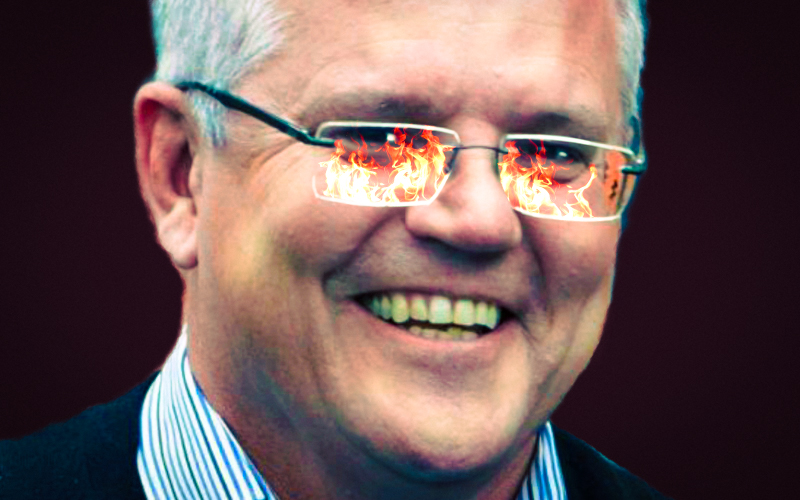
This post was originally published on Michael West Media.

This post was originally published on Michael West Media.
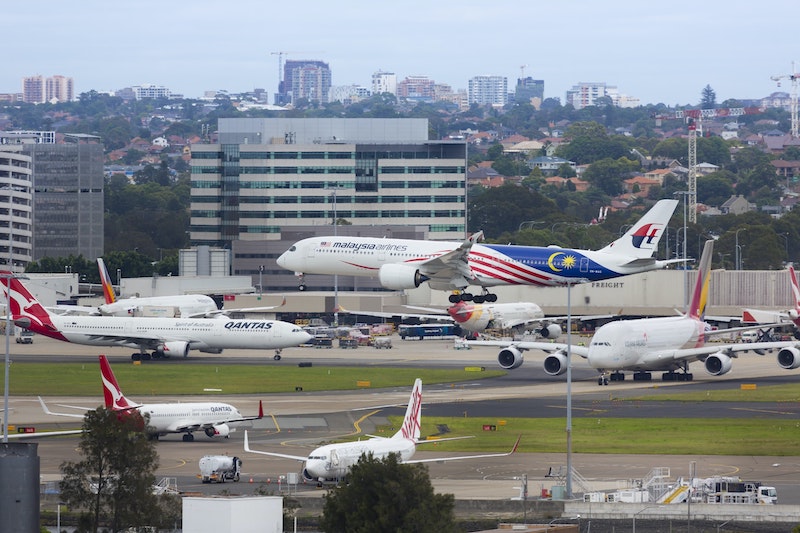
This post was originally published on Michael West Media.
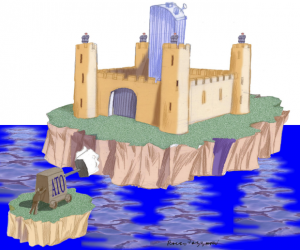
This post was originally published on Michael West Media.